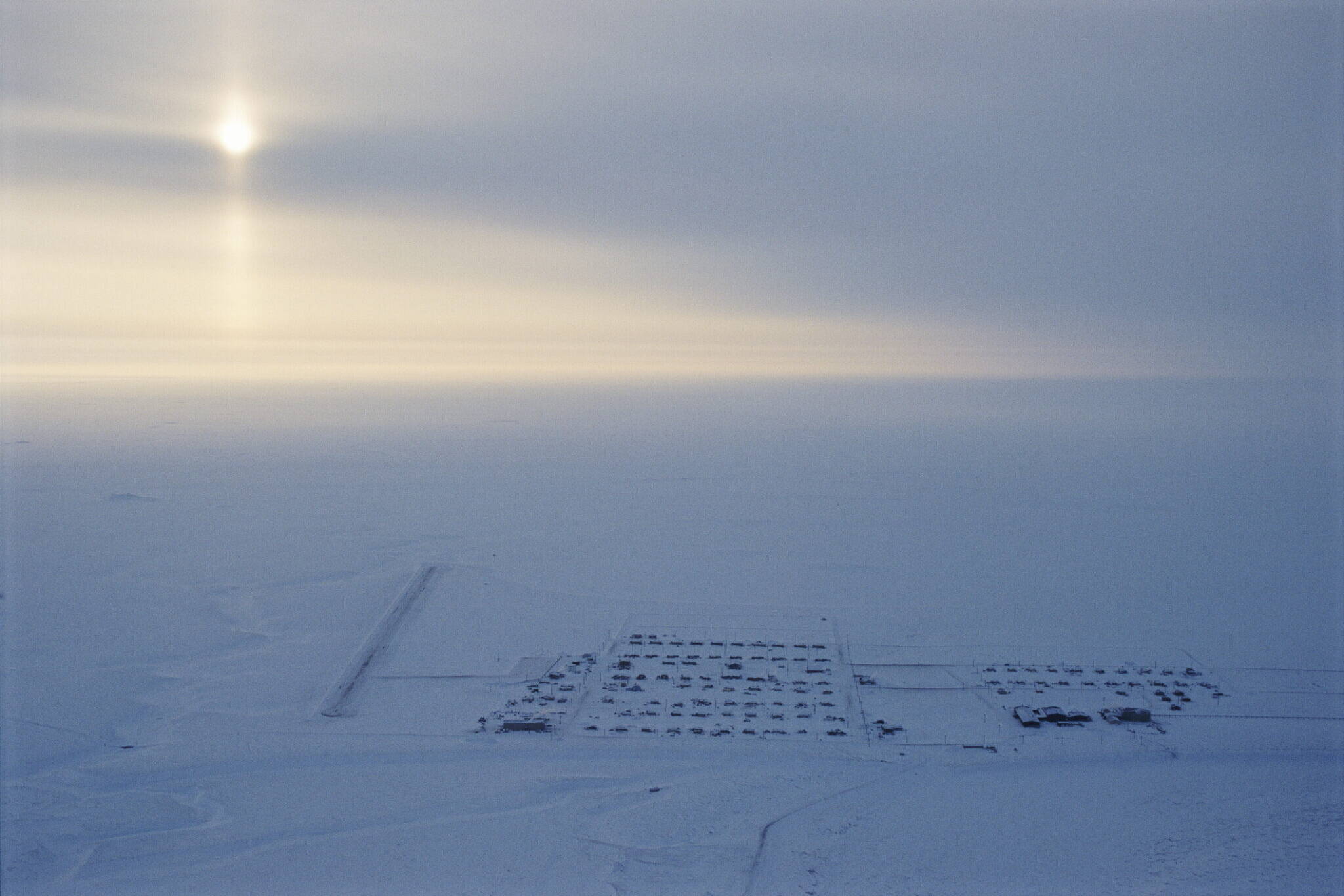As ConocoPhillips begins a major winter construction season for its planned Willow oil development, the governments of a North Slope village that were among the few local institutions to criticize the project have both changed their positions, according to newly released documents.
The Indigenous Iñupiat community of Nuiqsut, population 550, is the closest village to Willow, a controversial development that could boost the amount of oil produced in Alaska by more than one-third.
Nuiqsut’s tribal and city councils both approved resolutions in December withdrawing their support for a joint letter they released a year ago that blasted the “endless expansion of oil development and the complete encirclement of our village.”
The city council’s decision, at a Dec. 18 meeting, followed recent municipal elections that resulted in three new members and a new village mayor — after the previous mayor had vigorously opposed Willow’s approval.
“Five of the current six city council members participated in the discussion and unanimously felt it was proper to rescind the letter of opposition to the Willow development, and to work closely with the developer, ConocoPhillips, and the regulatory agencies to follow the conditions and stipulations that are in place to the maximum extent possible for the benefit of the community of Nuiqsut,” the city council’s December resolution said.
The tribal council’s resolution, which passed unanimously a day later, contains a caveat, saying that the tribal government is not opposed to Willow “so long as subsistence resources are protected.”
The Nuiqsut governments’ evolving positions on the project surfaced this week in documents filed by ConocoPhillips in ongoing litigation over the Biden administration’s approval of Willow.
Opponents of the project are asking a federal appeals court to temporarily block ConocoPhillips from continuing with construction while their underlying case challenging the Biden administration’s approval plays out. A lower-level federal judge has already dismissed the underlying lawsuit and multiple requests to stop construction.
The two Nuiqsut governments were some of the only institutions on Alaska’s petroleum-dependent North Slope to criticize the Willow development, which could produce 180,000 barrels of oil a day.
Their joint letter, dated Jan. 25, 2023, had criticized, among other things, Willow’s impacts on the caribou that village residents subsist on, as well as windows for public comment on the project that the councils said were too short.
The chief executive of Nuiqsut’s for-profit Native-owned village corporation, which withheld its support for Willow until 2022, said he had no firsthand knowledge about why the village governments changed their stances.
But the executive, Andy Mack, said it appears that council members are positioning themselves to take advantage of the opportunities that accompany Willow — like jobs and grants — now that construction appears increasingly inevitable.
“They’re looking at it as, ‘This project’s moving forward: What are we going to do as a city, what are we going to do as a tribe to support our shareholders?’” Mack said. “Turning the boat around at this point, while it’s possible, doesn’t seem likely.”
Willow is projected to generate billions of dollars in tax, royalty and other revenue for Indigenous communities on the North Slope and the region’s borough government, which already depends on petroleum revenue for 95% of its budget.
Borough and regional business leaders, along with Alaska Republican Gov. Mike Dunleavy and all three members of the state’s congressional delegation, have advocated forcefully for Willow’s approval amid intense opposition from conservation groups and climate activists.
In recent legal arguments asking the appeals court to temporarily block construction, conservation groups cited the original 2023 Nuiqsut letter as one of the reasons that such an order would serve the public interest — a key legal test that must be met before judges could issue such an order, known as an injunction.
ConocoPhillips’ lawyers, in a filing Tuesday, included the city and tribal government’s December resolutions withdrawing their support for the letter.
“Even before these resolutions, the public interest tipped sharply against an injunction,” ConocoPhillips’ attorneys wrote. “That is even more true now that the local city and tribal governments closest to the Willow project have made clear with formal resolutions that they do not oppose the project.”
Nuiqsut’s city clerk did not respond to a request Tuesday to release audio recordings of December’s public council meetings where members discussed the change in their position.
Nuiqsut’s tribal government did not respond to an emailed request for comment. And neither did Rosemary Ahtuangaruak, an environmental advocate and Willow critic who served as Nuiqsut’s mayor before the October municipal election.
ConocoPhillips, in a prepared statement Tuesday, said it has operated near Nuiqsut for more than 20 years and values its relationships within the North Slope community.
“The Willow project was designed and approved with subsistence protection measures, including measures responsive to input from Nuiqsut residents,” spokeswoman Rebecca Boys wrote. “We understand that it is a privilege to develop and operate on the North Slope, and we welcome support for our projects from all North Slope entities.”
ConocoPhillips, in its most recent legal filing, said the company has already started to mine gravel that will be used to built roads for Willow, and that 300 workers have been hired and sent to the field — a number that will grow to 1,800 later this winter.
• Nathaniel Herz welcomes tips at natherz@gmail.com or (907) 793-0312. This article was originally published in Northern Journal, a newsletter from Herz. Subscribe at this link. Alaska Beacon, an affiliate of States Newsroom, is an independent, nonpartisan news organization focused on connecting Alaskans to their state government.

